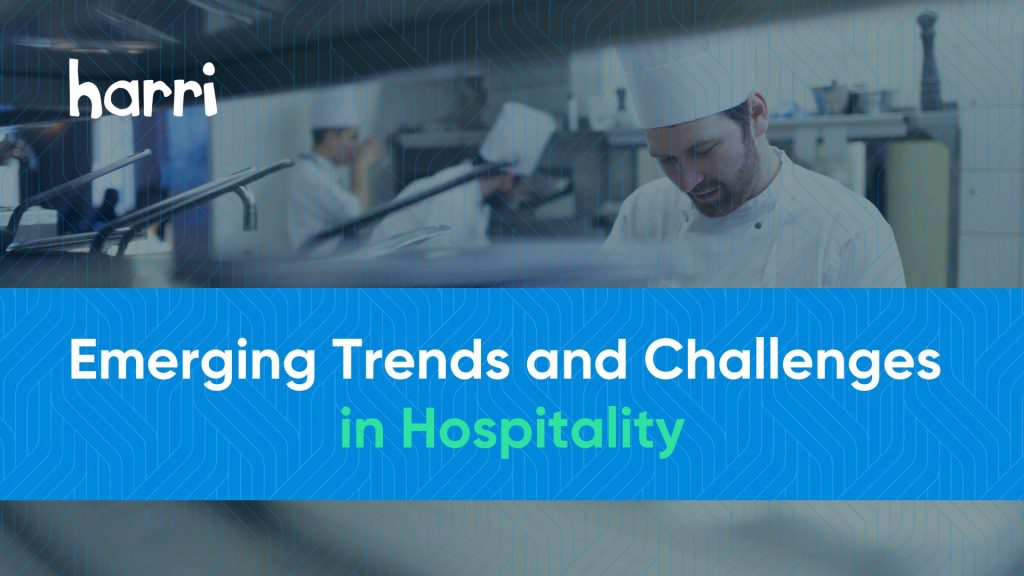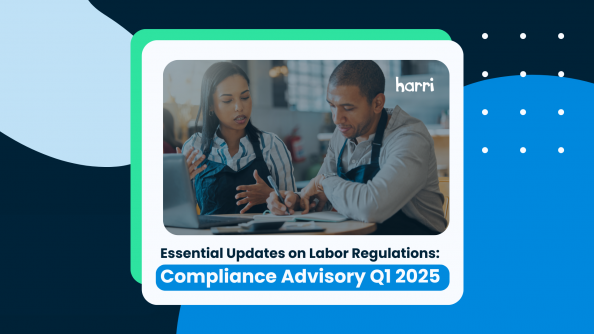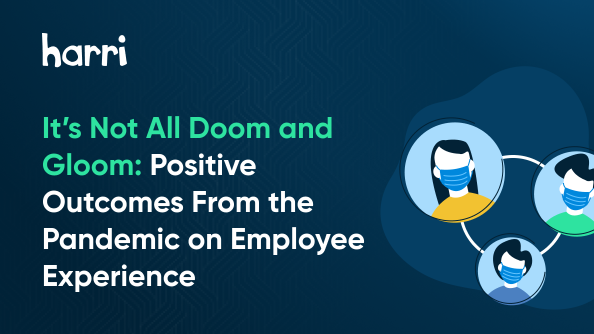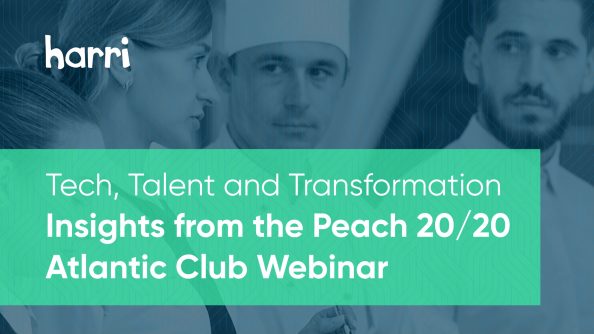Emerging Trends and Challenges in Hospitality

- By Harri Insider Team | May 9, 2024
Team Harri has been at numerous industry events over the past few months, engaging with operators and professionals across hospitality. These interactions have offered us valuable insights into the prevailing concerns and trending topics that are currently shaping the industry. Take a look at some of the key issues, with our thoughts on how to address these challenges effectively.
Combating Ghost Employees with Smart Technology
Operators are particularly vigilant about schemes such as ghost employees, which can result in significant financial losses. An operator in the US pointed out recently that one location lost $10,000 monthly for three years due to such fraudulent practices.
Harri’s advanced workforce management platform is designed to tackle these challenges head-on. It features the TeamHub app, which uses facial recognition technology to ensure that only actual employees can clock in and out. This system not only thwarts potential fraud but also helps maintain compliance with labor laws through timely alerts and accurate record-keeping.
By integrating these tools, Harri’s platform enhances operational efficiency and workforce accountability. This leads to substantial reductions in labor costs and minimizes the risk of financial discrepancies, making it an essential tool for hospitality operators aiming to safeguard their operations and enhance overall performance.

Navigating High Turnover in Hospitality
Turnover in hospitality is a pervasive issue, with 54% of employees actively seeking new roles every three months. This frequent job-hopping is often driven by several factors including inflexible schedules, insufficient wages, stressful work conditions, and a general lack of engagement. Moreover, 62% of operators report being understaffed, exacerbating the challenge of meeting customer demands, while 89% identify high labor costs as a significant hurdle.
Addressing these turnover triggers, Harri offers a comprehensive workforce management solution that prioritizes flexibility and engagement. Harri’s platform enables operators to create more adaptable scheduling, which aligns with employees’ availability and preferences, helping to alleviate stress and reduce burnout.
“Launching Harri and the innovation of the technology has played a crucial role in the retention of our employees.”
Head of People, Wingstop
Strategies for Attracting Committed Employees
Attracting and retaining dedicated employees in hospitality hinges on meeting their expectations for competitive compensation, comprehensive benefits, and flexible scheduling. Workers are also looking for clear pathways to career advancement and a work-life balance that suits their lifestyle.
In this landscape, job seekers expect more than just attractive job perks; the challenge lies in effectively communicating these opportunities. Crafting compelling job descriptions that resonate with the ideal candidate’s aspirations is a good start. However, the broader task involves aligning the brand image with genuine company values that reflect a distinct and appealing culture. A strong brand will attract the right people, allowing you the opportunity to focus on keeping them hired so your team can deliver a superior customer experience.
“It’s not a matter of answering, ‘how are we going to manage our hiring and our people operations’ anymore. It’s now about being able to focus on identifying the right people, training them correctly, marketing the business, and doing the things that will help us drive more revenue.”
Kevin Gancarz, Director of Operations, MPSquared Subs (Jersey Mikes)
Adapting to Federal Overtime Rule Changes
The landscape of compliance and employee compensation in California is undergoing significant changes that have implications on a national scale. The introduction of AB1228, effective April 1, 2024, has set a new precedent by increasing the minimum wage to $20 per hour. This legislation also adjusts annual wages based on the consumer price index or by 3.5%, whichever is lower. Moreover, it raises the minimum salary threshold to $83,200 for exempt employees.
This change is a precursor to the federal overtime rule adjustment set to take effect in stages, beginning July 1, where most salaried workers earning less than $844 per week will become eligible for overtime pay. By January 1, 2025, this threshold will rise to $1,128 per week. These adjustments reflect a significant shift in how workers are compensated, especially in overtime eligibility, adding layers of complexity to payroll management across the board.
For operators, particularly those operating across multiple states, these changes can lead to increased administrative burdens and potential compliance pitfalls. Harri’s workforce management solutions are designed to ease these challenges. By automating compliance with real-time updates to payroll regulations and proactive management tools, Harri helps ensure that businesses not only meet these new requirements but also maintain operational efficiency and reduce the risk of costly compliance errors.

Leveraging AI for Competitive Advantage in Hospitality
Artificial intelligence (AI) is redefining the role of technology in the hospitality industry, not by replacing human roles but by enhancing the capabilities of teams and providing a competitive advantage. This technological shift allows hospitality brands to streamline operations and elevate the overall employee experience.
AI’s integration into various hospitality functions, particularly in human resources and operations, is predominantly about enhancing efficiency. It automates routine tasks, such as payroll processing and employee scheduling, which are often prone to human error. This automation frees up staff to engage in more meaningful and rewarding activities, potentially boosting job satisfaction and productivity.
However, the adoption of AI also requires a careful balance to maintain and build employee trust. It’s crucial for HR and hospitality professionals to ensure that the use of AI is transparent and that employees understand how AI tools benefit their day-to-day activities and overall career development.
Harri’s platform exemplifies the integration of AI in a way that supports staff rather than supplants them. By automating administrative tasks, Harri allows employees to focus on what they do best—delivering exceptional guest experiences. This not only improves operational efficiencies but also enhances the satisfaction and productivity of the workforce, ultimately benefiting the entire brand.
Learn how Harri can Help Your Business
Navigating the complexities of the hospitality industry demands smart integration of technology to enhance efficiency and employee satisfaction. Addressing the issues of high turnover, compliance with labor laws, and the strategic recruitment of committed staff will foster a productive work environment and ensure high service quality. By embracing innovative solutions and flexible strategies, operators can significantly improve their operational dynamics and create a more engaging and rewarding workplace.



















